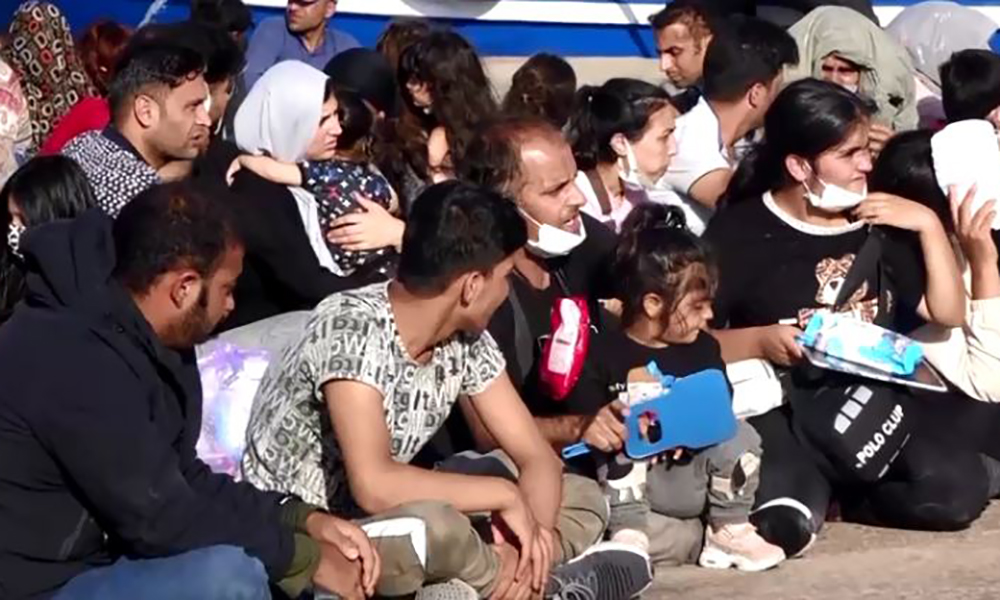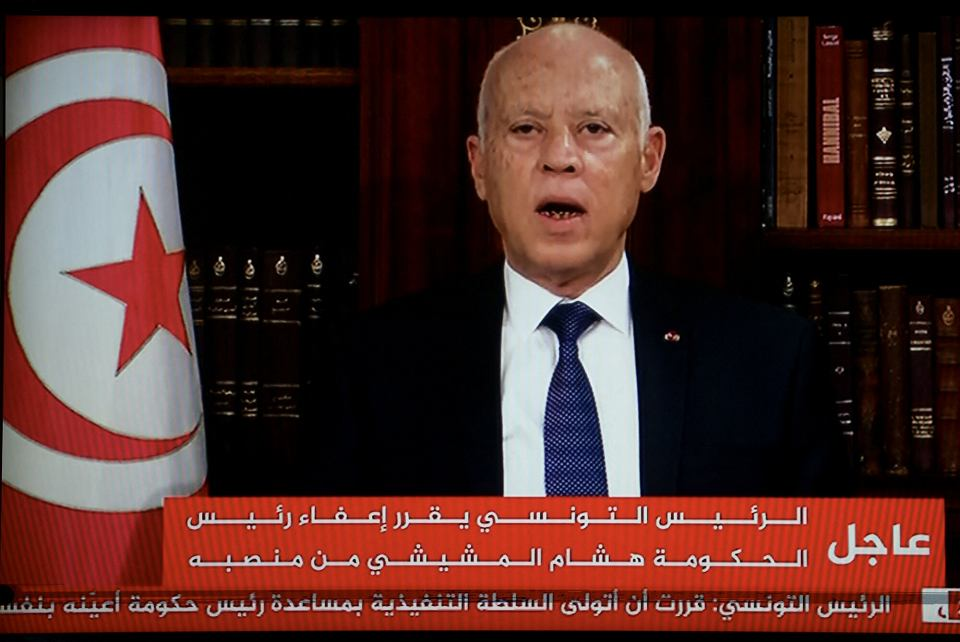Turkey seizes vessel carrying more than 200 Afghan migrants to Italy

The Turkish coast guard seized a vessel carrying some 231 migrants to Italy on Tuesday (July 27) in an operation around the west of the Greek island of Lesbos.

The Turkish coast guard seized a vessel carrying some 231 migrants to Italy on Tuesday (July 27) in an operation around the west of the Greek island of Lesbos.
Preşedintele Biden este pus acum într-o situaţie delicată, trebuind să manevreze între interesele Armatei SUA de a folosi Polonia drept bază strategică şi punct de presiune în raport cu spaţiul rus – chestiune salutată cu entuziasm de poporul polonez prieten.
Președintele Joe Biden l-a nominalizat pe Mark Gitenstein pentru funcția de ambasador al SUA la UE, potrivit unui comunicat al Casei Albe. Gitenstein a fost ambasador al SUA în România între 2009 și 2012. În 2013, a devenit membru in comitetul reprezentanților Fondului Proprietatea, unde a fost reales pentru un mandat care ar urma să se încheie în 2022.
Pegasus, the winged divine horse from Greek mythology, symbolises a range of things. The mythological salad can include many symbolic narratives — ranging from soul’s immortality to poetic inspiration — even the Marxist eschatological myth of the withering away of the state.
China is currently the country with the most trading partners in the world, China even managed to beat America. However, this has not been able to change China’s position as the world’s economic leader by shifting America’s position. This makes relations between the two countries even more complicated.
Ankara is strengthening ties with Sahelian capitals, building mosques and hospitals and opening up export markets. Its defence pact with Niamey has led rivals to suspect its intentions. Turkey and other outside powers should do what they can to avoid unnecessary additional competition in the region.
In der Mittagspause eine Runde surfen, nur noch zwei E-Mails und dann ab zum Strand mit den Kindern. Corona hat nicht nur unsere Arbeitsplätze von unseren Betriebsstätten entkoppelt. Dank Digitalisierung und Homeoffice müssen viele von uns nicht einmal in dem Land leben, in dem sie eigentlich arbeiten. Im Vorjahr hat die Zahl der sogenannten digitalen Nomaden zugenommen. Lockdown am Meer ist eben schöner als Lockdown in der Stadt. Und immer mehr EU-Staaten buhlen mit üppigen Steuerzuckerln um die wachsende Gruppe dieser relativ hoch qualifizierten, relativ gut verdienenden Fachkräfte, die für ihre Arbeit nur einen Laptop und High-Speed-Internet brauchen.
Afganistan’da Türkiye’nin nasıl bir rol oynayacağına dair formül üzerinde aslında tam bir karara varılmış değil. Bu karar Afganistan’dan çekilme kararı almış olan ABD ile görüşmelerle belirlenecek elbet ama bu konuda ABD’nin tek karar verici veya belirleyici olmadığı da gün gibi ortada. Oluşacak kararda da Türk varlığının oradaki mevcudiyetinde de belirleyici başka faktörler ve aktörler olacağı da açık. Bu aktörler arasında Pakistan da olacağı gibi Afganistan’ın da halkını temsil eden bütün taraflar, dolayısıyla Taliban da var.

Tunezyjski prezydent Kajs Saied zawiesił działanie parlamentu i odwołał z funkcji premiera Hiszama Maszisziego. To największy kryzys polityczny w tym kraju od rewolucji w 2011 roku, na skutek której wprowadzono system demokratyczny.
Her yerden gol yiyoruz. Libya diplomasimizin bir ayağını da Tunus ve Cezayir oluşturuyordu. Şimdi Tunus’ta yaşanacaklar Libya’daki durumumuzu az veya çok etkileyecek.